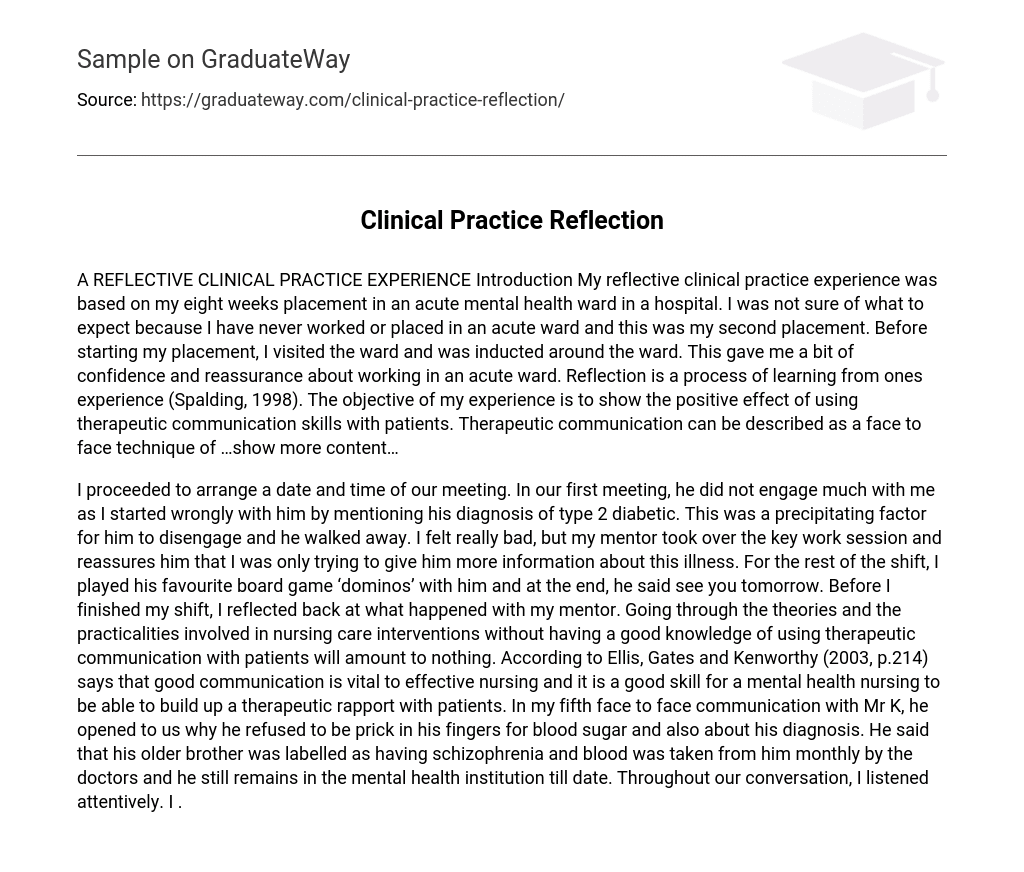My reflective clinical practice experience was based on my eight weeks placement in an acute mental health ward in a hospital. I was not sure of what to expect because I have never worked or placed in an acute ward and this was my second placement. Before starting my placement, I visited the ward and was inducted around the ward.
This gave me a bit of confidence and reassurance about working in an acute ward. Reflection is a process of learning from ones experience (Spalding, 1998). The objective of my experience is to show the positive effect of using therapeutic communication skills with patients. I proceeded to arrange a date and time of our meeting. In our first meeting, he did not engage much with me as I started wrongly with him by mentioning his diagnosis of type 2 diabetic.
This was a precipitating factor for him to disengage and he walked away. I felt really bad, but my mentor took over the key work session and reassures him that I was only trying to give him more information about this illness. For the rest of the shift, I played his favourite board game ‘dominos’ with him and at the end, he said see you tomorrow. Before I finished my shift, I reflected back at what happened with my mentor. Going through the theories and the practicalities involved in nursing care interventions without having a good knowledge of using therapeutic communication with patients will amount to nothing.
According to Ellis, Gates and Kenworthy (2003, p.214) says that good communication is vital to effective nursing and it is a good skill for a mental health nursing to be able to build up a therapeutic rapport with patients. In my fifth face to face communication with Mr K, he opened to us why he refused to be prick in his fingers for blood sugar and also about his diagnosis. He said that his older brother was labelled as having schizophrenia and blood was taken from him monthly by the doctors and he still remains in the mental health institution till date. Throughout our conversation, I listened attentively.





